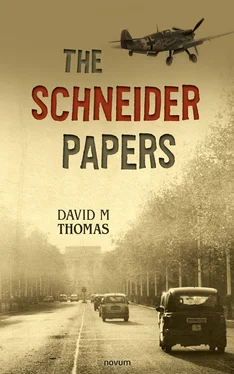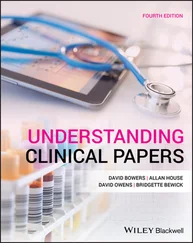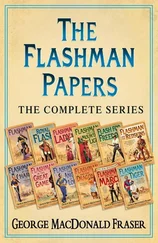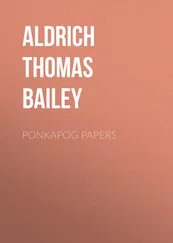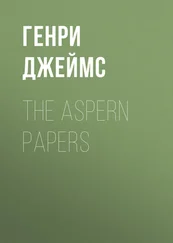1 ...8 9 10 12 13 14 ...26 ‘In an effort to, how can I say, to relax competition further, to protect ourselves, our respective companies formed alliances with other international companies. For example, by the late 20s we had established a wee bit less than a thousand agreements covering all aspects of chemical production, and in 1927 we signed a ‘Patents and Process Agreement’ with American DuPont in order to reduce the technology gap between ICI and DuPont and IG. We believe IG Farben has probably double, close to two thousand international agreements with other firms. These multifarious contracts, I have to say, brought stability to our industry.’
‘When you mention agreements and business understandings, do you mean cartels?’ asked Cartwright.
Sir Harry’s head shrank back in his armchair, and hepursed his lips if he had heard something unpleasant, distasteful even. He replied: ‘The usual definition of a cartel is an association of companies with the sole purpose of maintaining high prices, restricting competition and making obscene profits. That is what most people think. Right?’
Cartwright did not respond.
‘I prefer to view a cartel arrangement as a business instrument to keep a company profitable.’ Sir Harry McGowan moved forward in his seat and stared at Cartwright, ready to defend his statement. ‘The word ‘cartel’ has bad press, Cartwright. In today’s business environment, so called international trade, global trade, globalization some call it, we have to adapt to survive.’ Sir Harry sat back in his armchair and crossed his legs. Defence rests its case.
He decided to continue, hammer the point home. The Glaswegian accent became more pronounced.
‘In our business we can talk about two important business understandings; dyes and fertilizer. In other sectors you have understandings, or cartels if you prefer, Cartwright. In the minerals and oil sectors, cartels are necessary international business tools. It offers us stability. We are in one with IG Farben, well actually more than one, dyes and fertilizer, where we can reduce over-production without the consequence of catastrophic price reduction leading to insolvency.
‘And to be more specific, we pay IG Farben various royalties for using their patents and they pay us for using ours. We also use IG Farben subsidiaries for our sales outlets in South America and parts of the Far East, and we in turn help IG’s products in countries where we are strong; Bayer drugs and Agfa photographic products in Africa and India, for example. In other words, Cartwright, the link is strong. Mutual aid through business understandings is the name of the game today – if one wants to stay in the game.’
He concluded, ‘I have a company to run and to build, shareholder value to protect, shareholder expectations to satisfy, and cash dividends to distribute each year like Father Christmas. A product price war is destructive and not very profitable. There you have it.’ Sir Harry raised his left hand, palm towards Cartwright, and raised his glass to finished off the whisky with his right. He clapped both hands down on the arms of his leather chesterfield. Here endeth the lesson on business reality.
Cartwright looked up at the octagonal wall clock to his left. Sir Harry had spoken for less than fifteen minutes, and he had learnt all he wanted to know.
Cartwright caught a taxi home. As the cab wove its way down Gower Street on its way south, he thought of the next move. He had decided to focus on key import products: fuel and iron ore for steel making. For now. The rise of the new German airforce seriously worried him, so priority was to learn more of the military aviation fuel business, and Matthews to be snared for real-time economic analysis.
He was both apprehensive and excited at the same time. He was apprehensive of the scale of the challenge and excited that he was going to do something. Lefoy, his country manager in Berlin, had lined up some interesting characters to fill in the gaps. This was the raison d’etre of his Industrial Resource Section.
By the time the taxi cab had reached Piccadilly Circus, he had decided a nightcap at his club would not be a bad idea. New instructions were passed to the driver.
Chapter 5: Wednesday, 9th September 1936
Chancellor Hitler spoke of the need for authority and rebuilding Germany through his Four-Year-Plan.
The letters arrived first post. He heard the bicycle wheels on the gravel, then the footsteps and the squeak and slam of the letterbox. Two letters lay on the off-cut carpet doormat. One was from the local builder, Mr. A Staples & Son; he recognised the copperplate handwriting, and at the same time decided to keep it pending. The letter would inform him of the estimated cost and start date of builders chaos. The other was a small brown coloured envelope with an embossed Air Ministry, Adastral House, Kingsway WCI at the top left corner, and addressed to him using his Squadron Leader rank. Official and unwelcome. He placed both letters on the hall table and, as an afterthought, deliberately put the beige coloured letter underneath the roof repair estimate from Mr. Staples, Master Builder. Carpentry and Roofs a Speciality. He shuffled into the kitchen and filled the kettle. The day was going to be another September blue-sky ‘scorcher,’ as the front page of the ‘Daily Express’ would scream the obvious, thus subliminally reassuring readers of its news and editorial accuracy.
With both hands he slowly grabbed the rim of the sink, hunched his shoulders and bowed his head. ‘What now?’ he said out loud with a degree of resignation, followed by a touch of electrical excitement which pulsed, just the once, through his upper arms and up into the back of his head. ‘Here we go again,’ thinking of his last little escapade where he only just managed to escape by the skin of his teeth. Pure luck! Lucky Harry.
He was bare-footed and still in his pyjamas, no need for a dressing gown. Who would see him anyway? The cottage was christened ‘Ashurst’ when it was built for Wilf Catt, a tenant farmer, and his family in the late seventeenth century. Actually, it was not technically a cottage, architecturally speaking, more of a half-timber framed yeoman’s house, but it was described by Mary to her friends as a heavenly petite country cottage. It was down a long, sinuous, sunken track bordered by thick hedges and trees; described, again by Mary, as ‘so reminiscent of Normandy bocages.’ She had spent long teenage summers there with a distant great-aunt of claimed early Norman and Viking lineage. The move to East Sussex was her idea for a ‘need to change the air,’ as she called the tense marital situation that had quickly developed after his return from his overseas venture. When he described the location of ‘Ashurst’ he always called the cart track that veered off from the main Crowhurst road Sackgrasse Ashurst, German for a dead-end or cul-de-sac, which bemused friends and confused tradesmen.
Thoughts of Mary returned. The place was silent and empty. He could sense her presence in every room. The lingering ‘cancan’ floral perfume in the bedroom, still faint, but definitely there; the scattered newspapers and open journals in the sitting room, which reminded him of how it used to be; tidy stacked newspapers, a spic and span house but with a cold heart. What was that poem, ‘the smile on your mouth was the deadest thing.’ He couldn’t remember where it came from, but apt, he thought.
The batch loaf was hastily and roughly sawed into portions and strawberry jam quickly and messily daubed on the bread pieces lying in a row. Fresh air was called for; a need to get out of the house. The letter from the Air Ministry had indeed unsettled him. He had a routine, a three or four mile run before breakfast, but not today. The new walking itinerary would take him up the track’s slight incline, around Macey’s barley field, through Ghottswoods, once part of an ancient forest which covered most of the county, and down to Combe Haven levels and possibly a beer at one of his watering-holes by the sea.
Читать дальше
